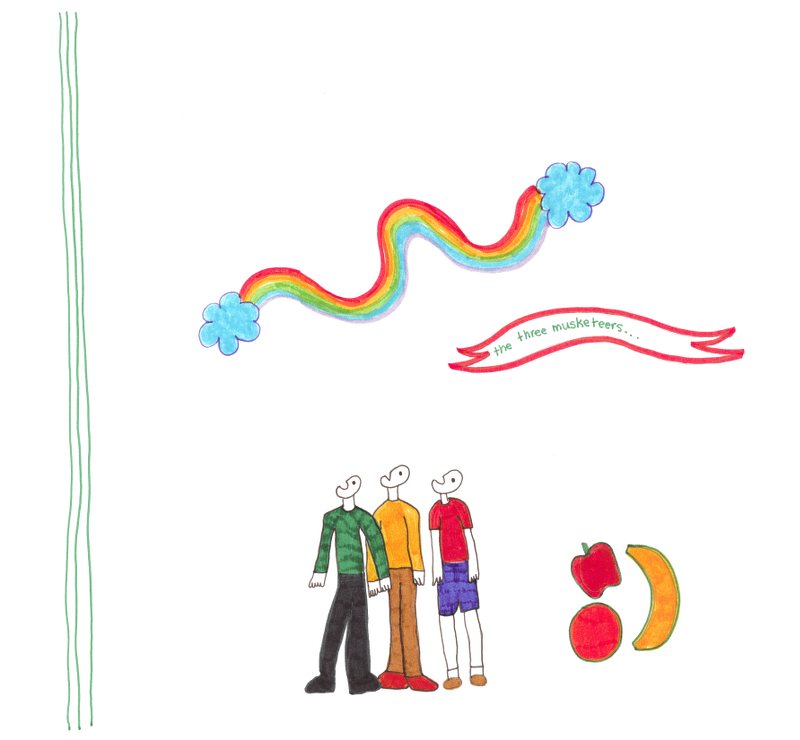
I can’t help noticing that, even in West Virginia, I am the only adult in my holler who doesn’t have a job. From 9-5 Mondays through Fridays, there is no one in this little valley but me.
I love to hear people’s opinions on whether or not women should work. The majority of people I talk to seem to agree that women should work (unless they are taking time off to stay home with their young children). Which makes me wonder why they should, but on this there does not appear to be a consensus. When pressed, though, people’s answers seem to fall into one of these three categories:
1. Women should work for their own sake. Jobs help them to lead more satisfying lives and to achieve their true potential.
2. Women should work for their husband’s sake. It is cruel to place all financial burdens on a man’s thin shoulders.
3. Women should work for society’s sake. More women in the work force will lead to more female leaders which will lead to a better world.
And of these three arguments, the “women should work for their own sake” seems to be most popular. And here are the top three reasons why people say women should work for their own sake:
1. Jobs bring women personal fulfillment and the opportunity to develop their talents.
2. Jobs give women security in case their husband decides to join the circus (or otherwise ceases to provide.)
3. Jobs give women freedom and independence. When us ladies have our own money, then our husbands can’t tell us what to do. Only our bosses can.
And of these three reasons, the first is once again the most popular. So basically, many people believe that women should be employed because employment leads to inner growth and fulfillment.
Which could be true, although I have to say that my own experiences with jobs have never led me to that conclusion. My time as a career lady was mostly spent staring at stacks of papers and trying not to faint. Or at least trying to ensure that if I did faint, my head would fall behind a potted plant where it could not be seen. Eight hours a day of trying to appear busy when there was nothing at all to do. Eight hours a day of trying to keep alert expressions on my face as my mind sunk deep into a coma. The most exciting moments were spent making coffee or driving to the store to buy glitter pens and Fat Free Vanilla Creamer for the boss.
But my experiences may be unusual. I don’t know how stimulated and fulfilled the average person feels at work. But I also don’t know why being employed would be an obviously and inherently superior existence to what a person might do if left to their own devices. (Even though I am well acquainted with the pitfalls of being left to my own devices.)
I think the real reason people think it is good for women to work, is simply because most women DO work (for economic reasons, probably), and healthy minds tend to conclude that whatever we are already doing is actually the best choice that could be made.
Which is why I have concluded that the only way a person can TRULY know themselves is to be left all alone for 40 hours a week, in a white box, in a tiny valley, sandwiched between a steep cliff and the home of a child molester. Only under these rare and perfect circumstances can a person’s spirit truly grow wings and soar to the heavens. Only under these ideal conditions will the Inner Phoenix be revealed.
My plan was to spend the summer lying on a yellow striped towel, reading on the beach. I had my doubts about this plan, because, after all, books can strain your eyes and fill your mind with horrible ideas, and beaches can be cold and windy (at least in New England). Still, it was the best idea for how to spend my summer I could think of, because I wanted to take a break from my regular routine and do something different. And I’ve never read on a beach before, even though reading near bodies of water is a very popular activity in New England.
But no sooner had I started shopping for beach towels, then James decides to take a job in Hurricane, West Virginia. So we drove down for his interview, back up to New Hampshire to pack and load a U-haul, and back down to Hurricane to unload and unpack, and that has been my summer so far. All in all, it has been a more refreshing change than reading on the beach.
So far, I like Hurricane. We live just a few minutes from the Blenko glass factory, and I’ve already been shopping there twice in four days. My last apartment was mostly blue, but this one will be mostly yellow, plus orange, red, pink and all the colors of the rainbow. New England is restraint, and I want my new life to be exuberance. In New England, art is mastery, intellect, sometimes pretension, and I hope that in West Virginia, art will be color, nature, and feeling.
But I always idealize new things in the beginning, and then grow disillusioned when reality starts to come into focus. When I first arrived in New Hampshire, I thought, “Wow- this is amazing! There are no mean people here! (I theorized that the cold had killed them off.) Everyone is so friendly and lives only for the joy of helping others!” But as time wore on, pettiness and narcissism became visible, do-gooding began to seem like nothing more than a path to self-aggrandizement… the golden angels turned back into people, and now I was someplace no better than before, just way colder.

So, I want to avoid placing West Virginia on a pedestal, but still, I have to say it is an enormous relief to be someplace less expensive, where an apartment twice the size, and much nicer, costs half the price. Pepperoni Rolls- the signature food of West Virginia- cost 1/10th (!!!) the price of Lobster Rolls- the signature food of New England. Frankly, I don’t like either type of roll very much, but I’d rather pay $1.50 for a sandwhich I don’t like than $15.00 (although I’ve seen people pay up to $60.00 for a lobster roll!!).
James and I bought two lobster rolls in New England, and both were traumatic experiences.
The first lobster roll happened right after moving there (we had been talking about lobster rolls- which I had read about in magazines- the whole ride up, imaging the rich luscious taste of buttery lobster in a hot dog roll melting in our mouths). We were strapped for cash due to the move, so we stopped at a run down shack thinking we would share a lobster roll for dinner with the few dollars we had left. Their least expensive roll was a shocking $15.00 and it was a tiny little thing, but since lobster rolls had been central to our vision of life in New England, we decided to buy one anyway. As we carried the roll to a picnic table outside, a fly landed on it, and while shooing the fly, some of the precious lobster meat was knocked to the ground. James picked it up and ate it, because the only thing he hates more than germs is wasted money. But the true disappointment was the taste- it really didn’t taste like much at all, except for a fishy, animalistic flavor that left me slightly uncomfortable, especially when combined with the chewy texture that kept bringing to mind images of boiled insects. Still, I pretended to like it for James sake.
Fast forward a few months, and I’m lying sick in bed for the first time in years, probably from climate shock, panicking because I am afraid the autumn leafs will all have fallen before I get a chance to see them. (The autumn leaves are very beautiful in New England, but were also a source of great stress, since it seemed you had only a few days to view them while they were “peaking” before they fell and plunged you into a dark and endless winter. I have many memories of driving 90mph down the highway trying to reach some leaves that were peaking before the sun set.) So James, wanting to cheer me up, spent one of his last 20s to surprise me with a $20 lobster roll. I tried to eat it, but the insect feeling was just too much, and I finally had to admit to James that I hadn’t liked the first one either. So poor James was forced to eat the lobster roll himself, but he cried while doing so, because 1) he doesn’t like lobster rolls either, and 2) he had wanted to cheer me up, not stuff $20 of prestige into his own stomach.
I think there is a kind of psychological pressure that descends on people when things are too expensive. It makes the external environment seem too impressive, and one’s own self feel too unimportant. That’s why I like West Virginia. James and I can stuff ourselves silly on bacon, eggs, biscuits, country ham, coffee and juice, all for less than $10 at Tudor’s Biscuit World. A dazzling hand-blown orange Blenko vase is sold for $15, and the cashier gives you an extra $5 off, just because. Last night, I bought a yellow shirt, and the charge was exactly… Zero Dollars (I am not kidding!) due to all the discounts the salesperson tacked on. Everywhere you go, prices seem lower than you thought they would be, and discounts seem to pop up unexpectedly, the way fees and charges did in New England. Up north, it was kind of expected that you be willing to open your wallet and drop a few twenties for just about anything- a casual meal, a few drinks, an hour of listening to trombone music, a brick that would symbolically support homeless people, a glimpse of a wilted wreathe hung in an historic home… That’s not because everyone was rich, there were plenty struggling to get by, it was just the culture to pay more for less, and to let go of money easily and without complaint. Forget about buying clothes and nice things for yourself, forget about saving for the future, just take out your wallet and dump it at the feet of the man tap dancing on the sidewalk.
